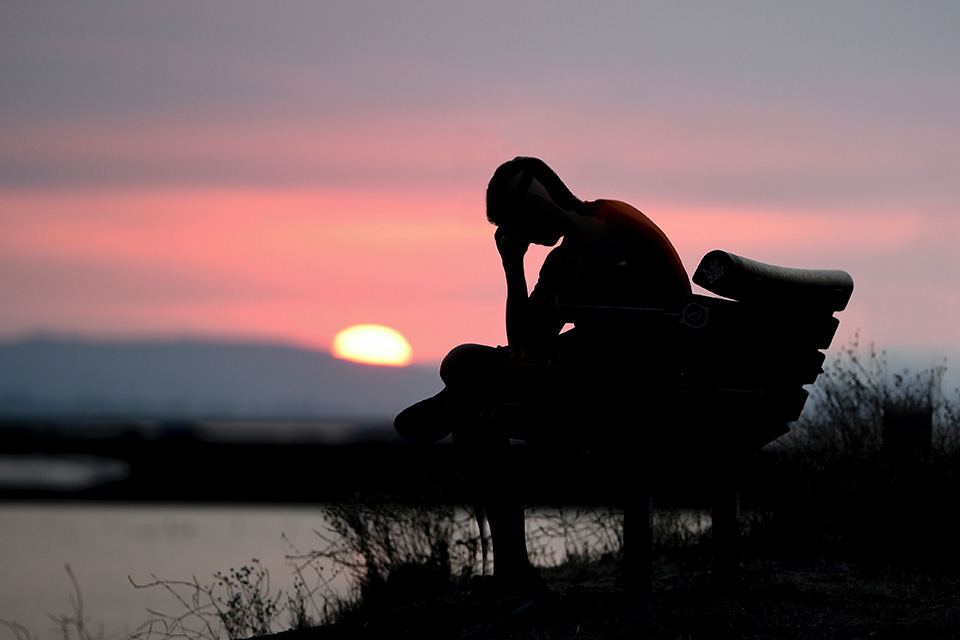Expert Q&A on COVID-19 and mental health impacts

From physical and mental health to alcohol and substance use, University of Victoria researchers are working with a global team of scientists to understand and improve the mental well-being of communities in Canada during COVID-19.
Theone Paterson, an assistant professor of psychology at UVic, says the study will give researchers a unique understanding of the impact of the pandemic across participating regions around the world to compare country by country what people are experiencing. This will help inform mental health policy and services. Paterson, who is a clinical psychologist, is working alongside Brianna Turner, a UVic psychologist who focuses on youth, self-harm behaviour and suicide.
Researchers from 11 countries—from Canada to India—will assess ways to improve the health of individuals and populations through a worldwide survey led by researchers at the UK’s National Health Service. UVic is the only Canadian university participating in the global collaboration.
Q How has the global pandemic shone a light on the need to tackle mental health issues?
A. During COVID, we have been concerned about the likelihood of increases in suicide rates, a rise in domestic violence, impacts of chronic stress in relation to job loss, child care and related issues. We have also been worried about how fear of exposure to the virus impacts Canadians’ mental health. These issues aren't exclusive to any single population, in a single part of the world. To better understand the impacts in the Canadian context, we recently launched the Canadian component of this global survey.Q Why is a global study on mental health and COVID-19 important?
A. It is hoped this study will provide researchers and local authorities with a much broader view of how the pandemic is affecting people’s mental health. Comparing Canadian findings with data from other countries may provide insight into the differential mental health impacts of different public health responses to the pandemic. It may also shed light on changes to available mental health services that could be beneficial in the Canadian context. Data from this study may then be used to adapt mental health services and delivery by practitioners. One example is modifications to outreach and intervention programs available to Canadians. We also hope we can learn how we can improve Canada’s response to future crises, including potential subsequent waves of the current pandemic.Q What do you hope to achieve with this research project?
A. We want to investigate the psychological impacts of COVID-19 and the public health response. This includes changes in self-harm and suicidality, experience of domestic violence, experience of symptoms relating to anxiety, depression, and stress and changes in substance-use experiences.
We are also hoping to study COVID-19’s psychological impact on some specific groups including front-line healthcare workers, Indigenous peoples and people living in rural and remote areas. We hope this additional, specific examination will improve practitioners’ ability to match the best types of mental health services to meet people’s needs.
Q Is this the first pandemic in modern times that requires a closer look at the psychological impact?
A. No, it's not the first modern pandemic. The novel coronavirus has been compared to the Spanish flu pandemic of 1918, and it is likely this historical event had significant psychological impacts. More recently, there have been a number of epidemics and pandemics: SARS, swine flu and MERS to name a few, and of course, there has also been the ongoing HIV/AIDS pandemic that has had a devastating impact, claiming an estimated 25 to 35 million lives. More recent pandemics and epidemics have been studied and impacts on mental health and suicide rates have been found.
But there are some unique features of the COVID-19 pandemic. The virus' ease of transmission compared to others has necessitated, in some regions, much more broad-reaching public health responses. For example, lockdowns of cities, extensive business and school closures. Around the world, the public health response has hugely impacted our lives. It is important to improve our understanding of how all these changes have affected our mental health.
Q How can the public get involved and how will you share the results?
A. There are multiple rounds of surveys happening simultaneously now, into the fall and winter months. After each round, researchers will analyze the data and provide information to the public.
Read more UVic COVID-19 stories here.
Learn more about UVic's Research Accelerator Fund here.
Photos
Media contacts
Theone Paterson at 250-721-7547 or tpaterson@uvic.ca
Anne MacLaurin (Social Sciences Communications) at 250-217-4259 or sosccomm@uvic.ca
Jennifer Kwan (University Communications + Marketing) at 250-721-7641 or researchcomm@uvic.ca
In this story
Keywords: COVID, health, research, Psychology, Research Accelerator Fund, administrative
People: Theone Paterson, Brianna Turner






